DIY Portuguese — 9 Free (or Very Cheap) Resources

Photo by Dayvison de Oliveira Silva from Pexels
Planning a trip to Brazil or Portugal but don’t have the time or money to attend a class? Never fear. There are ways to get your Portuguese language skills up and running from the comfort of your living room. In this post I share some of my favorite DIY (do it yourself) resources for learning Portuguese at home.
Table of Contents
- Why I’m Learning Portuguese
- Resources for Learning Portuguese
- 1. Duolingo Portuguese Course
- 2. Speaking Brazilian YouTube Channel
- 3. Português com Marcia Macedo YouTube Channel
- 4. Portugués com Philipe Brazuca
- 5. Your Hobby + Portuguese = Engaged Language Learner
- 6. Read a Novel in Portuguese
- 7. Google Translate
- 8. Podcasts in Portuguese
- 9. Watch a TV Show In Portuguese (Not for Beginners)
Why I’m Learning Portuguese
We are planning a long (90 days) stay in Brazil and have been working steadily at acquiring as much Portuguese as possible before our trip. On a shorter trip some essential words and basic phrases might suffice. But for this long of a stay, we feel it will enrich the experience to be as conversational as possible before we go.
This is not the first language I’ve attempted to learn without formal classroom training. I’ve successfully become conversational in Spanish over the course of many years.
Having already learned Spanish is a huge advantage in learning Portuguese since the two languages are like cousins. In other words, they follow similar rules of grammar and share tons of cognates (i.e. words that are either exactly the same or recognizable as the same word).
There is one major pitfall in leveraging your prior Spanish to learn Portuguese, however. You have to fight the temptation, the urge, the involuntary reflex to speak Spanish while you’re supposed to be speaking Portuguese.
That said, I want to learn Portuguese to be a better guest while in Brazil. I also want to learn Portuguese because it is such a beautiful language!
Resources for Learning Portuguese
The following sections highlight the resources I’ve found most helpful. They are all free, or no more than the cost of buying a book on Amazon.
When learning a language, you should seek out variety in modes of exposure. Don’t just pick one of the following resources and think that will suffice.
The best way to memorize new words and phrases is to encounter them in different contexts. So don’t just ace the Duolingo course and think you’re now “fluent”. Try reading a novel, watching a TV show, or listening to a podcast to up your game and further reinforce what you’ve learned through the other methods.
1. Duolingo Portuguese Course
Here is a link to DuoLingo’s Portuguese course.
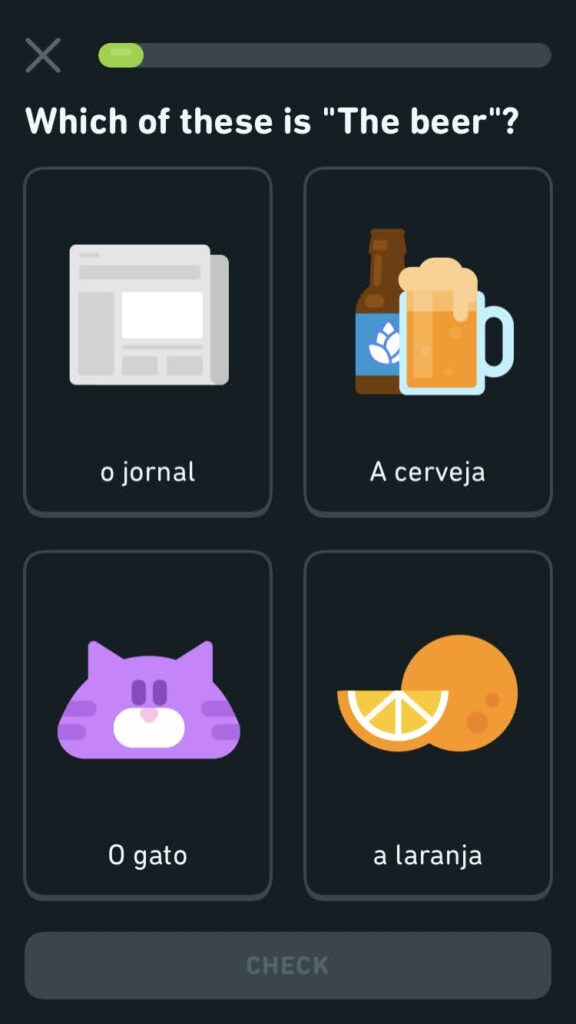
In my opinion, Duolingo is the best place to start. It will give you a good base of vocabulary and grammar.
You can do the entire course for free, but I ended up paying for mine for the ad-free experience (and other convenient perks).
Years ago (actually, more than a decade ago), I tried to learn Italian with a workbook and CD I bought at Barnes and Noble. You need something like that to acquire the basics. Duolingo fills that same need, but much more quickly and effectively than a workbook. It has speaking and listening exercises throughout the course and even includes funny little stories and conversations you can follow.
Already having learned Spanish, the grammar and most of the words were easy to master, so I just did the first level (or “crown”) in each lesson. If this is your first Romance language, you may want to go through the course several times as the app urges you to do.
2. Speaking Brazilian YouTube Channel
Virginia Langhammer speaks Portuguese throughout the entire video so you are not only getting the topic of the lesson, but also ten to fifteen minutes of listening and comprehension practice. The clarity and rate of her speech makes following along deceptively easy, which is perfect for a beginner seeking some immersion.
Topics range from nuts-and-bolts grammatical concepts to Brazilian geography and culture to mini “field trips” where you learn context-specific vocabulary. The videos are very well produced and include both the Portuguese subtitles and English translations at the bottom of the video.
Here is a link to the Speaking Brazilian YouTube Channel. And here is a sampling of some of my favorite videos from this channel.
3. Português com Marcia Macedo YouTube Channel
This is another YouTube channel I’ve relied on extensively. Marcia Macedo teaches all of her lessons entirely in Portuguese. Her speech is very easy to understand and is perfect for a beginner getting their ear attuned to the language.
Topics usually revolve around grammar, word usage, and listicles of useful words and phrases. One of the topics she covers well would be best described as “common mistakes Spanish speakers make when speaking Portuguese.” As I mentioned above, this is a real problem sometimes leading to funny or embarrassing mistakes.
Here is a link to the her YouTube Channel.
4. Portugués com Philipe Brazuca
I recently subscribed to this YouTube channel after running into some of Philipe’s videos on avoiding “Portunhol” (a portmanteau of Portuguese and Spanish, usually referring to the tendency of Spanish speakers to butcher Portuguese with false cognates or “falsos amigos”).
After months of listening to the slow and well enunciated videos mentioned above, they eventually felt unchallenging. Philipe’s lessons, by contrast, were refreshingly fast paced and lightly interspersed with common slang, like “beleza“.
Here is a link to the Portugues com Philipe Brazuca YouTube channel. And here are some sample videos:
5. Your Hobby + Portuguese = Engaged Language Learner
I didn’t mean to make this a big advertisement for YouTube, but it’s a great tool for language learning that didn’t exist when I was learning Spanish so many years ago. Another way to leverage it is to find topics you’re interested in in your target language. That gets you out of the language learning space and exposes you to the way people speak in real life. It also gives you domain-specific vocabulary that you won’t get in videos that target a general audience.
During the recent (and ongoing) pandemic, I fell in love with bread baking. It’s almost a cliché, I know — office worker forced to work from home, tinkers with sourdough. Regardless, that interest led me to Paola Carosella’s channel.
Maybe culinary arts is not your thing. Are you a techie? A sports fanatic? The point is find something you’re interested in. The content will suck you in and you’ll learn the words you need to discuss the things you love to talk about.
6. Read a Novel in Portuguese
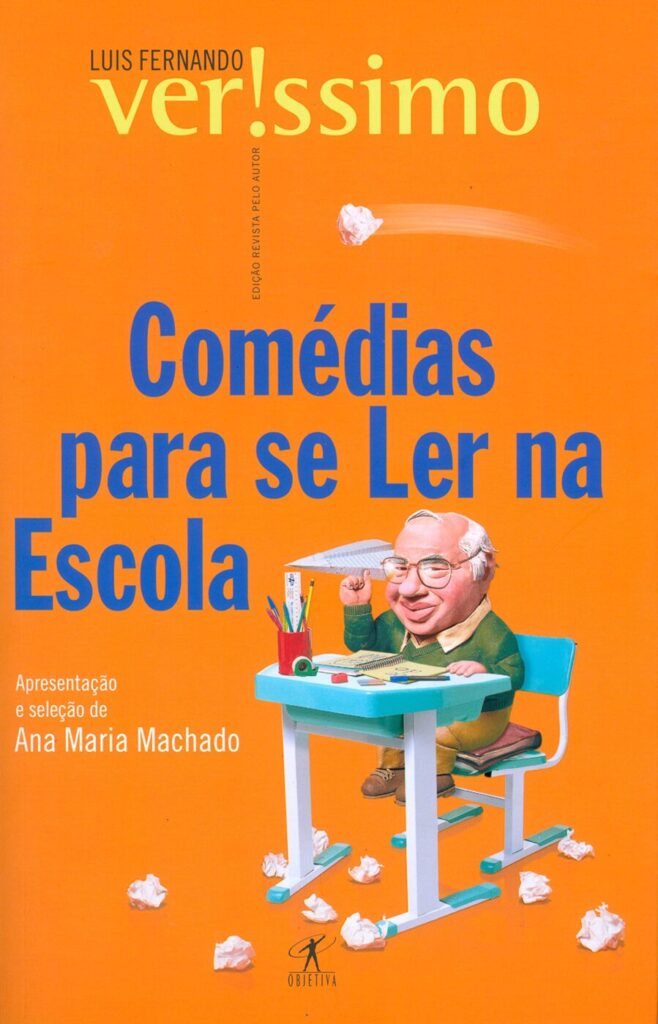
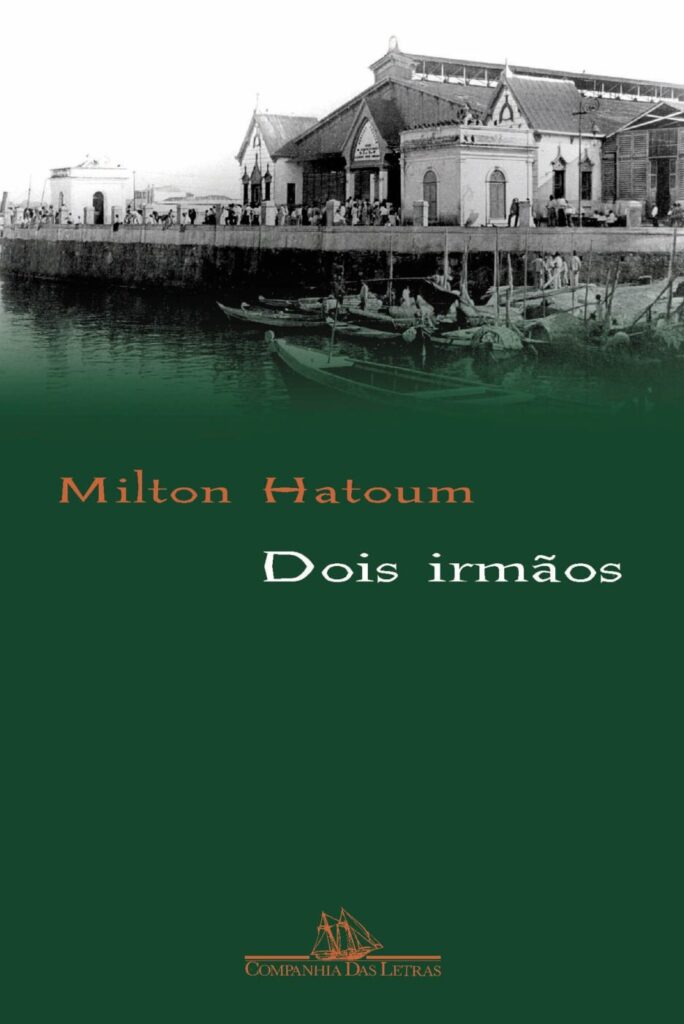
I am currently in the middle of my first novel in Portuguese, Dois Irmãos. As of yet, I don’t have a lot of personal recommendations. But this website provides a good list to start with.
Reading literature in another language is difficult, to say the least. But you will be rewarded with an expanded vocabulary and cultural references you can use in conversation.
The key to productive reading is to avoid the temptation to look up every word you don’t know as you read. This disrupts the flow of the story and turns it into an arduous slog. If you allow yourself to skip over the words you don’t know, you’ll be surprised at how much you can follow the story and sometimes even pick up words you don’t know from the context. Not to mention that you’ll enjoy the experience more and be motivated to keep reading.
7. Google Translate
Google Translate is an app found on the web and any mobile device. It presents a simple interface with two boxes, one for the input language and one for the translated output. But its simplicity belies its power and usefulness.
It has also become quite accurate over the years. Gone are the days when my trilingual wife and I would use the app as entertainment, laughing at the butchered translations.
In regards to language learning, I use Google Translate in two ways:
- Since I don’t have any Portuguese conversation partners at the moment, I imagine the conversations I will have with people in the future. This helps to reveal the gaps in my knowledge. When I don’t know a word, or how to phrase a more complicated thought — for example, “I wish I would have known it was going to be this cold in the mountains.” — I just reach for my phone and see what Google would say.
- While reading, I often run into a sentence or a whole paragraph I can’t decipher. When this happens, I just select the Lens feature, point my camera at the page, and a few seconds later, the entire page is translated before my eyes. Magic!
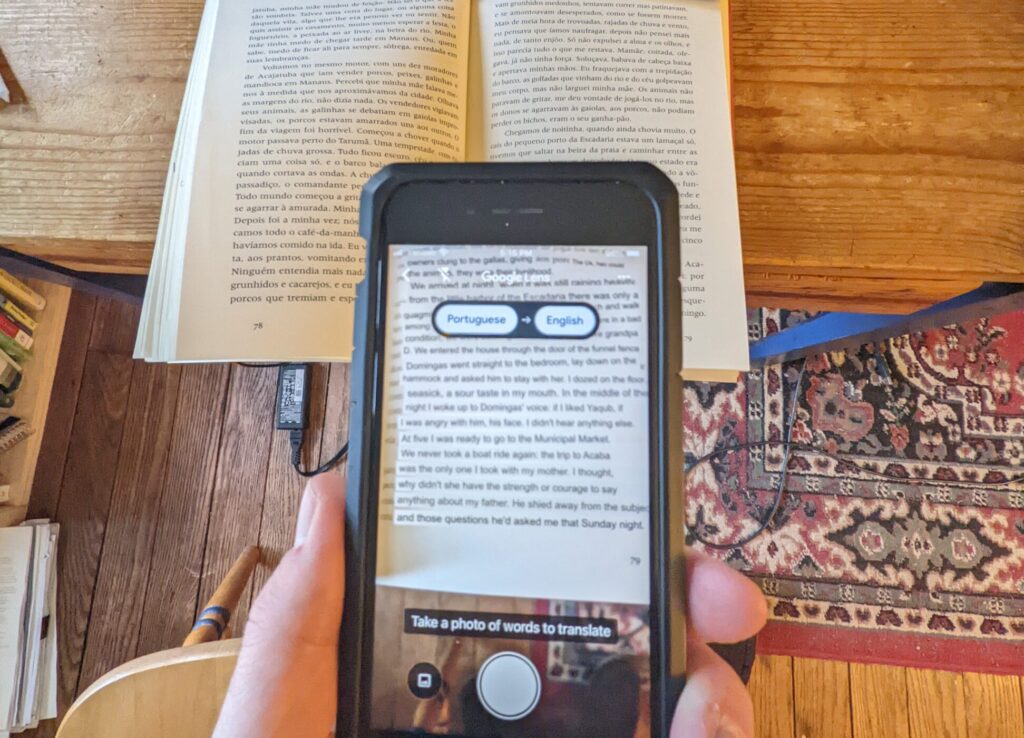
8. Podcasts in Portuguese
There are several websites out there that list Portuguese podcasts for language learners such as this one and this one. I encourage you to find one that is not only appropriate for your level, but most importantly, covers topics that you find interesting.
The podcast I’m listening to right now is Carioca Connection. It features a couple — one a native Portuguese speaker, the other a native English speaker, though he speaks with a convincing accent — having a conversations about a variety of topics. The podcasts are short, no more than ten to twenty minutes.
I find that podcast helpful for several reasons. First, it is a useful to hear two people converse with each other. You hear little jokes, side comments and banter that you don’t get when listening to a prepared lesson. Second, Foster, the native English speaker, sometimes makes subtle mistakes. Alexia corrects him, which leads to a lot of teaching moments.
Also, the Rio de Janeiro accents are slightly more challenging to understand than the very clear Portuguese spoken in the YouTube lessons. Overall it feels like good preparation for beginning to understand the average person on the street.
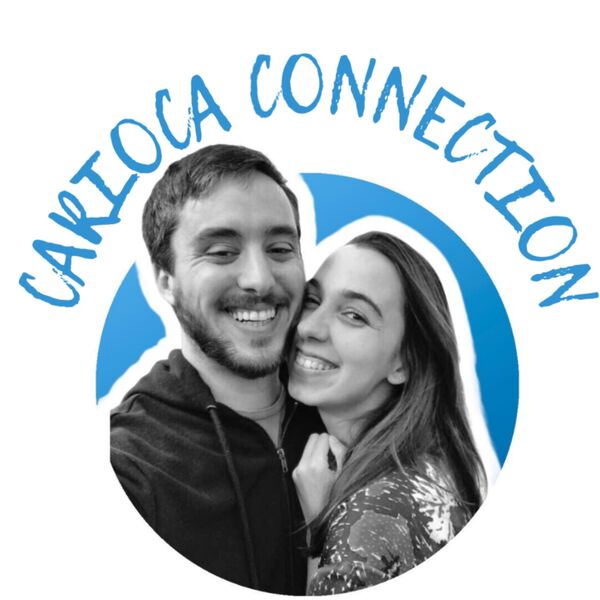
9. Watch a TV Show In Portuguese (Not for Beginners)
My wife and I are watching the Netflix series Girls from Ipanema. We turn on the Portuguese subtitles (no English) and hold on tight while the dialogue speeds past our ability to comprehend.
Without the subtitles, we would be very lost. Did I mention they speak fast?
Even so, though we miss some key lines and jokes, we somehow manage to track with the overarching narrative (and even catch some of the dirty words!).
At first, it seemed too difficult for us to get anything from it, but if you stick with it, you’ll be surprised at how much you understand by the end.






